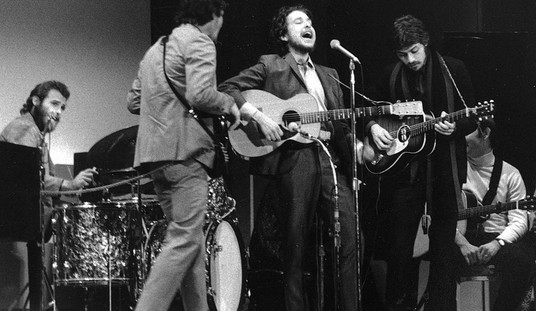We've been down this road, before. Taxpayer-supported National Public Radio (NPR) and Public Broadcasting Service (PBS) insist that their respective reporting and coverage aren't politically biased. A ridiculous claim, of course, given the ever-growing mountain of evidence to the contrary.
Before we continue with the issue at hand, let's first clear up the funding business. While NPR and PBS supporters insist the networks are privately funded, and naysayers claim they're taxpayer-funded, both camps are wrong — and right. Even The Washington Post admits as much:
The Corporation for Public Broadcasting, NPR’s and PBS’s parent, received $525 million for fiscal 2024. Of that, $367 million went to public television stations. Public radio stations got $126 million.
NPR’s and PBS’s assertions that direct federal funding totals a tiny portion of their budgets amounts to rhetorical money laundering. Through program charges and other fees paid by stations, their total take from Uncle Sam is well into double digits, in NPR’s case an estimated 17 percent or more of the network’s budget.
NPR and PBS might not be directly government-controlled like Russia’s RT, but they most definitely are government-funded.
In other words, NPR and PBS are funded by a combination of private donations from listeners and viewers, foundations and corporations, and taxpayers. Funding for public television comes in roughly equal parts from the government (at all levels) and the private sector.
Now that that's cleared up, let's get on with the show.
George Washington University Law School Professor and Fox News legal expert Jonathan Turley set the stage, perfectly.
National Public Radio has had a rough go in the last few years with declining audiences, financial shortfalls, and the recent exposure of its political bias by longtime editor Uri Berliner. However, if you tuned into the comments of NPR CEO Katherine Maher this week at the Texas Tribune Festival, you would think that the only challenging decision for NPR is picking the design of the next pledge drive tote bag.
Love the bit of snark at the end, there, from the professor.
Mayer kicked off her defense of NPR with what Turley called a "literal punchline."
I stand here to defend the integrity of the newsroom and to defend the integrity of the reporting and to say that every single day our folks get up, and they want to stand there and make sure that they are serving the American public in the best possible way from a nonpartisan perspective.
Laugh-out-loud hilarious, Ms. Mayer.
Uri Berliner, one of the longtime editors at NPR, in April wrote a scathing account about political bias at the media outlet. NPR, of course, denied the allegations. Maher lashed out at Berliner, calling his criticism and his call for greater diversity in the newsroom “profoundly disrespectful, hurtful, and demeaning.” The 25-year NPR veteran earned a five-day suspension without pay, and subsequently resigned in the same month.
Turley continued to hammer away at the troubled public radio station.
NPR insists that only roughly 1 percent of its budget comes from the government. But that is misleading due to a federal law that distributes funds through local stations and the Corporation for Public Broadcasting. Hundreds of millions of dollars have been set aside for CPB in fiscal year 2026, a sizable increase from 2025.
In the meantime, NPR’s audience has been declining. Indeed, that trend has been most pronounced since 2017 — the period when Berliner said the company began to openly pursue a political narrative and agenda to counter Donald Trump. The company has reported falling advertising revenue and, like many outlets, has made deep staff cuts to deal with budget shortfalls.
And here was Turley's money shot:
Kathleen Carroll, former executive editor at the Associated Press, declared “[NPR's] objective by whose standard? …That standard seems to be white, educated, and fairly wealthy.”
Ironically, that happens to be the main demographic of the NPR audience. According to surveys, that also includes a largely liberal audience that’s less racially diverse than…wait for it…Fox News.
Game, set, match.
Defending NPR (or PBS) as objective, non-biased, and focused on "the integrity of its reporting and culture" is tantamount to defending MSNBC race-hustlers Al Sharpton and Joy Reid as color-blind and race neutral. OK, perhaps not as blatantly, but you get the point.















